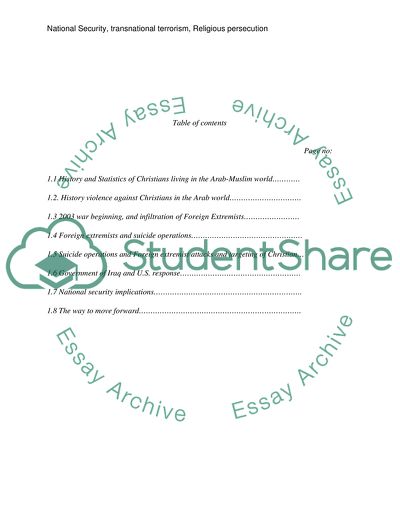Cite this document
(National Security, Transnational Terrorism and Religious Persecution Assignment, n.d.)
National Security, Transnational Terrorism and Religious Persecution Assignment. https://studentshare.org/history/1724493-national-security-transnational-terrorism-religious-persecution
National Security, Transnational Terrorism and Religious Persecution Assignment. https://studentshare.org/history/1724493-national-security-transnational-terrorism-religious-persecution
(National Security, Transnational Terrorism and Religious Persecution Assignment)
National Security, Transnational Terrorism and Religious Persecution Assignment. https://studentshare.org/history/1724493-national-security-transnational-terrorism-religious-persecution.
National Security, Transnational Terrorism and Religious Persecution Assignment. https://studentshare.org/history/1724493-national-security-transnational-terrorism-religious-persecution.
“National Security, Transnational Terrorism and Religious Persecution Assignment”. https://studentshare.org/history/1724493-national-security-transnational-terrorism-religious-persecution.


